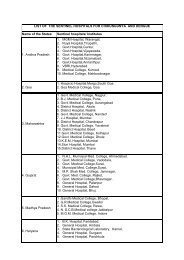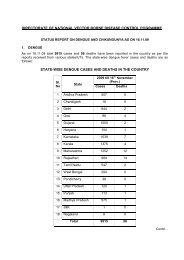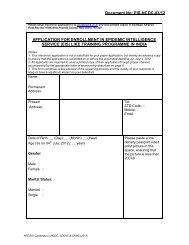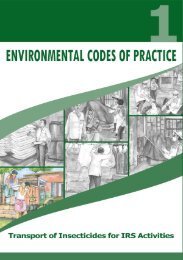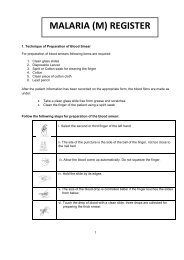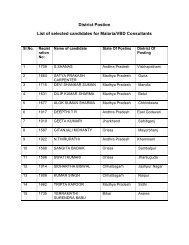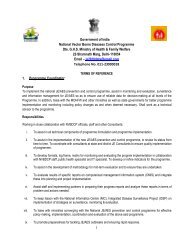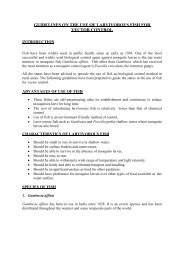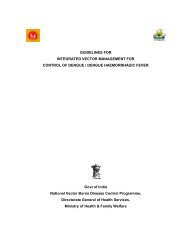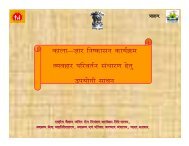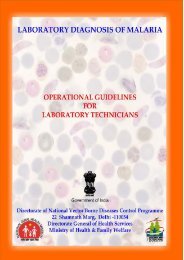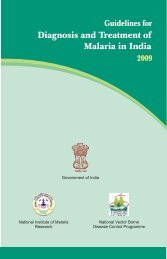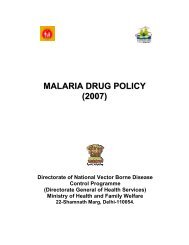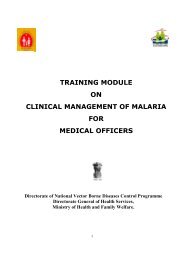training module for medical officers primary health centre - NVBDCP
training module for medical officers primary health centre - NVBDCP
training module for medical officers primary health centre - NVBDCP
- No tags were found...
Create successful ePaper yourself
Turn your PDF publications into a flip-book with our unique Google optimized e-Paper software.
4.7: TRAININGThe following <strong>training</strong> courses would enable the <strong>health</strong> care providers to optimally utilize theinterventions and contribute effectively to malaria control activities:A 3-day residential course at district level <strong>for</strong> MO-PHC on program management and a 2-daycourse on case management would enable the MO-PHC to function effectively as a team leaderand program manager to lead program to success in malaria control.A 2-day residential course at the district/block level <strong>for</strong> MPHS would enable the MPHSs to play theirroles as supervisors of program implementationA 1-day non-residential course at block level <strong>for</strong> MPHW (M & F) would provide them fullunderstanding of roles to support ASHA / volunteers, and their own changing roles in the program. A 3-day non-residential course at block level <strong>for</strong> ASHA/AWW/volunteers along with MPHW (M & F)would impart skills in them to conduct RDT and administer ACT and understand how they willcontribute to malaria controlThe levels of trainers and trainees are shown below:TrainersMaster TrainersDistrict level trainersBlock level trainersTraineesDistrict VBD consultants, MTSMO-PHCMPHS, MPHW (M & F), ASHA/AWW/volunteersAll attempts will be made to make the initial <strong>training</strong> practical and useful, but one-time <strong>training</strong> is neversufficient to ensure results. There<strong>for</strong>e, there is a need <strong>for</strong> constant supportive supervision by guidingthe ASHA/volunteer to make sure that they work with understanding and focus. The supportivesupervision is much more critical than the initial <strong>training</strong>. The MO-PHC, as the team leader andprogram manager, is primarily responsible <strong>for</strong> ensuring that all ASHA / volunteers / <strong>health</strong> workers gettimely and adequate support to do their job correctly.Critical elements of supportive supervisionIt is the prime responsibility of the MPHW (M &F) to ensure that every ASHA/volunteer is well supportedin their role, but this may sometimes require the direct intervention of the MPHS or even the MO-PHC.The following elements of supportive supervision <strong>for</strong> ASHA/volunteers are crucial to malaria control: Encouraging the community to get treatment from them Soliciting the panchayats and SHGs to support them Guide and be with the ASHA/volunteers till they become confident of doing blood tests correctly83



